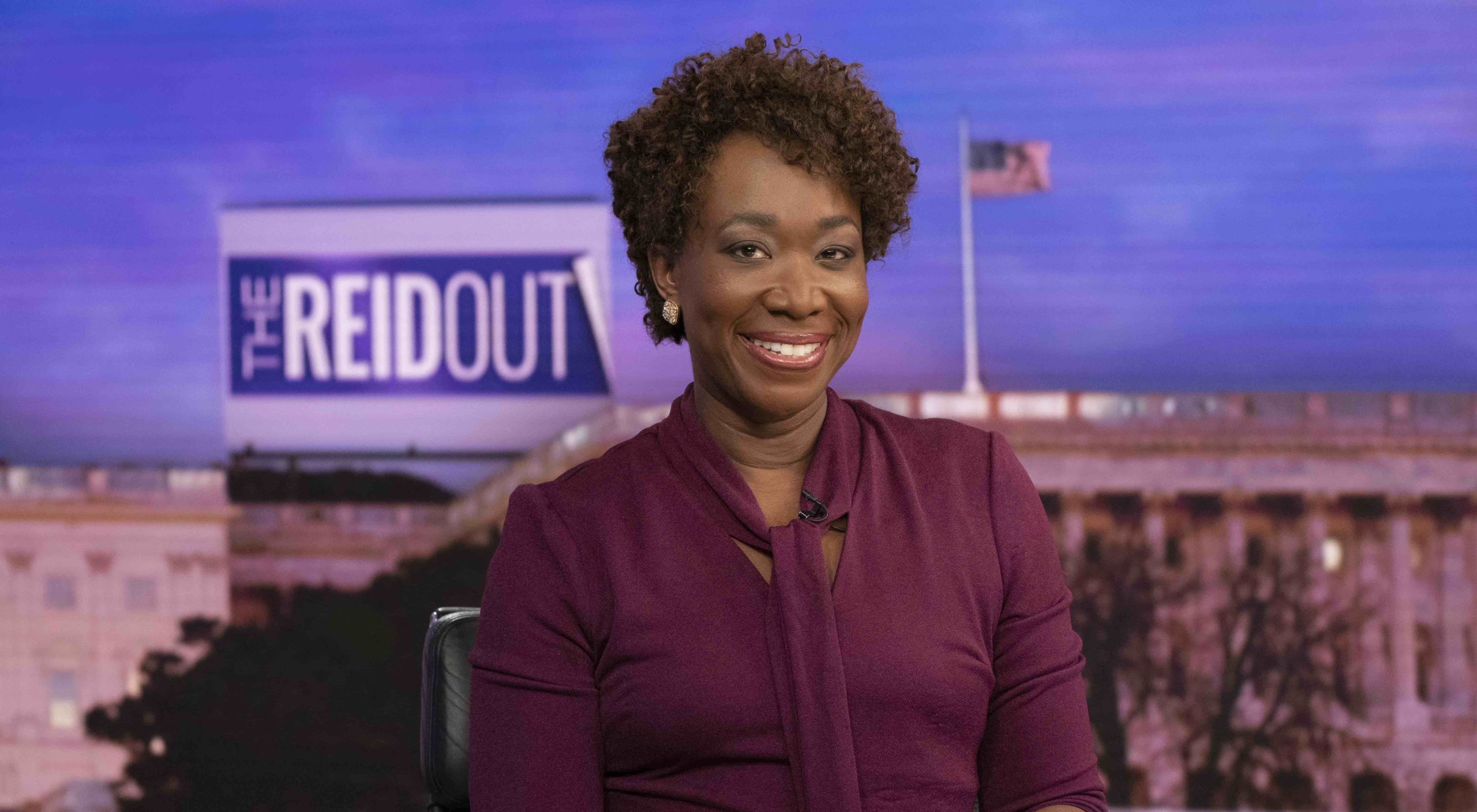I have been following Joy Reid since she joined MSNBC as the host of the political weekend-morning talk show AM JOY in 2016. From the start, I found her to be refreshingly smart, witty, funny and relatable. A few years later, I got to know her, and I am thrilled to now count her as one of my friends. What you see on air is pretty much what she is in real life.
Beyond her ability to cement herself on the American cable television scene, she has become a force to reckon with, based on her courage and ability to use conversation as a tool for transformation. Joy recently made history as the first black woman to anchor a prime-time weeknight show, called TheReidOut.
As a New York-based French native of Nigerian descent, it is not lost on me that we are living in a historic moment. The U.S. is bound to change. Daughters of immigrants are now able to shape the American narrative, by recognizing and seizing opportunities. Kamala Harris is a black woman of South Asian and Caribbean decent. The fact that Joe Biden chose her to be his running mate speaks to this emerging reality.
With the promise of this new reality in mind, I have been thinking of the people—especially the women—who embody the power of representation and social value. That is why I caught up with Joy Reid. I wanted to learn more about who she is, where she comes from, what she cares about, and what ended up shaping her perspectives on some of the critical issues of our time.
I have been following you ever since you joined AM Joy almost five years ago. The first time I heard you mention your connection to the continent was when Trump reportedly called some African nations “shithole” countries. Your monologue was inspiring, particularly the part where you shared the fact that your father was from the Democratic Republic of Congo and your mom came from the Caribbean. How was the experience for you and why was it important to share that part of your lineage?
My father, who was from the DRC and my mother, who came from Guyana, met in the U.S. — in Iowa, in the early 1960s. But they never let go of their identities, even after my mother became a U.S. citizen. My sister, brother and I grew up with African and Caribbean culture as a core part of our lives. My parents divorced, so my father eventually became someone I knew only as a voice on the phone, but his stories about life as a Black man in South Africa (where he worked as a geologist) were my connection to Africa as a kid. I finally set foot on the continent myself in December 2018 when my husband and I went to South Africa for my birthday and to participate in the Global Citizen Project. It was like going home. Africa to me is heritage, culture, and the origin, both for me as a Black American, for my mother’s culture in Guyana, and for all of the rich, beautiful aspects of being Black.
Both of your parents were immigrants to America. How did their immigrant story shape your perspective around how you experience your blackness in America? Does their experience influence the way you approach your work?
My parents’ immigrant experience shapes how I think about politics and society every day. Chain migration, which the current President villainizes, is how my family got here. And the rejection of Black and brown immigrants and refugees by the Trump administration is painful for me personally. Particularly since the President himself is the son and grandson of immigrants. I let that personal pain and empathy flow through my work.
The New York Times recently stated that Black Lives Matter might become the largest movement in history. Do you think BLM can have a meaningful global impact, especially within the African continent?
Black Lives Matter is surely the largest sustained movement in history, in part, because it is a continuation of the civil rights movement that extended from the first decades of the 20th century to its peak in the 1960s. BLM is the modern iteration, and it has proved itself to be sustainable and powerful. I definitely see it having a national and global impact.
Do you observe any kind of political or social movement led by young people in Africa or are their lives perhaps overshadowed by other more basic human concerns?
The next step for Black Lives Matter is to extend beyond the United States and to the Diaspora. That’s where the real potential and power lies—in a Diasporal movement of Black people. I believe that because of the connectivity of people that social media has made possible, this will happen.
How would you describe your 2018 trip to South Africa? Was it the first time you travelled to the continent?
My 2018 visit to South Africa was the first time my feet touched the soil of the Continent. It was magical. Just breathing in the air of Africa made me feel renewed, proud and ebullient. It made me determined to return again and again, and to sow seeds that will make my people both proud and aid in their progress. I felt at home, and I am longing to go back!
Is America ready for a female president in four years?
America is ready for a woman president, and I suspect we have already seen her. If Joe Biden wins in November, keep your eyes on Kamala Harris in 2024!
Yasmina F. Edwards is the Founder & CEO of EGMNY
